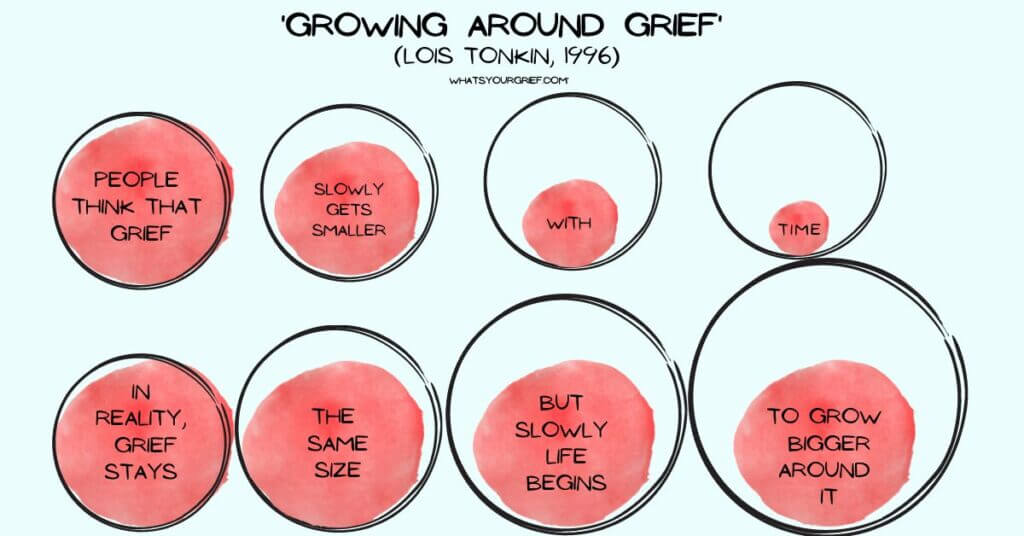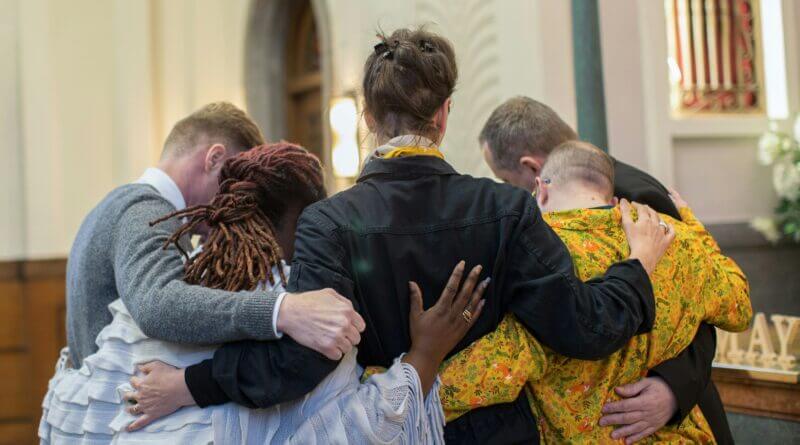Filson: A Few Words About Grief
Note: As we enter the holiday season, celebrations and joyous times abound. But, the season can also become a period of sadness and grief as loved ones leave us, or the annual reminders of loved ones who have passed away during the holidays. Traci Filson, a Licensed Funeral Director in DeSoto County, offers these words about the grief journey.
By Traci M. Filson, Licensed Funeral Director
Grief is defined as “The normal response to a major loss, such as the death of a loved one. This may include feelings of great sadness, anger, guilt, and despair.”1
To quote Dr. Earl A. Grollman: “Grief is not a disorder, a disease, or a sign of weakness. It is an emotional, physical, and spiritual necessity, the price you pay for love. The only cure for grief is to grieve.”2
Loss comes to us in different forms. It may be the loss of a job, divorce, an accident that may cause paralysis, or any number of events, including the loss of a beloved pet or loved one. Everyone responds to grief differently, even two people that experience the same loss, such as two siblings losing a parent. This can be based on their relationship with that parent and personal experiences not just with that parent, but in their lives in general. They WILL experience grief differently from each other. Grief is a normal part of life, and generally, most people grieve in a healthy manner. **Please note, if you, or someone you love, is grieving in a destructive manner, such as drinking heavily or using drugs, or has thoughts of suicide, PLEASE seek professional help immediately!**
According to psychiatrist Dr. Elisabeth Kübler-Ross, there are five stages of grief. While she primarily worked with those under hospice care, and her quotes below will refer to her hospice patients, these same stages apply to those that are grieving the loss of their loved ones as well.
Denial – We deny that our loved one has died. While this is seen primarily with a sudden death, or one that happened shortly after a diagnosis, anyone can experience this. Dr. Kübler-Ross feels that denial is healthy and
“Denial functions as a buffer after unexpected shocking news, allows the patient to collect himself and, with time, mobilize other, less radical defenses.”3
Anger – We are angry that our loved one has died. Sometimes you are angry at your loved one for leaving you. Other times, you can be angry at someone else in your life – even though they may not have had anything to do with the death. You may be angry at inanimate objects. You may even be angry at God (and this is OK!). You may question, “Why me?” or “What did I do to deserve this?” or “Why did he/she have to leave me? I need them to help me with ______! I can’t do this on my own!” You may experience other emotions during this time, such as irritability, impatience, bitterness, etc. This is perfectly normal. On the other side of the coin, we also need to be aware of other people in our family that are also angry. Why are they angry? Is it something from the past that is unresolved at the passing of the loved one? Whether it is us or someone else, the anger may seem rational or irrational. However, it is important to realize that this is a defense mechanism, and we need to learn to be tolerant of the anger. This is not saying that it gives someone a free pass to be angry at the world, but that there is something that is causing this anger. It may be based on the reasons above, but it could be something that has developed over years with the loved one that has passed. As Dr. Kübler-Ross states:
“We have to learn to listen to our patients and at times even to accept some irrational anger, knowing that the relief in expressing it will help them toward a better acceptance of the final hour. We can do this only when we have faced our own fears of death, our own destructive wishes and have become aware of our own defenses which may interfere with our patient care.” (Emphasis mine.)4
In the case of those of us grieving, it can help us to accept our loss, and facing our own fears can help us with our own grieving process.
Bargaining – At this stage, you are trying to hold on to hope that your loved one is still alive. Maybe you’re feeling guilty that you haven’t done enough to help your loved one while they were alive. Maybe you’re thinking that if you are just able to do this one thing that your loved one will return.
“Most bargains are made with God and are usually kept a secret or mentioned between the lines or in a chaplain’s private office…Psychologically, promises may be associated with quiet guilt, and it would therefore be helpful if such remarks…were not just brushed aside…”5
Again, perfectly normal. We want our loved one back at all costs, and sometimes we feel we can make a deal with God to bring them back. We may even do this before they pass by trying to do this or that in the hopes that they won’t pass. This is part of anticipatory grief, which will be discussed separately later.
Depression – Nearly everyone will have some degree of depression following the death of a loved one, and it is experienced differently by everyone. This is a natural and appropriate response to grief and is not considered to be a mental illness. One may want to sleep more during this time, to escape their depression. Sometimes it is sitting in front of the TV all day not wanting to do anything. Other times it could be overeating or not eating anything at all. Aside from destructive behaviors as mentioned above (or overeating or not eating is for an extended period), there is no right or wrong way to go about it, and there is no timeline one must follow.
Acceptance – This is acknowledging the death has occurred, how you have learned to live with the loss, and going through your “new normal”. This may not be like a switch that has been flipped and suddenly you accept the death. It may be gradual and interspersed periodically with the other stages – little brief instances that gradually become longer and longer. And this is not to say that years down the road a sound, scent, activity, or something else won’t trigger a wave of grief, whether it be anger, depression, or even “ugly crying,” but you will have adjusted to the “new normal” and are having a moment. You loved your loved one so deeply that their loss hurts like nothing else imaginable. This is expected.
Not everyone will go through every one of these stages, and they most likely will not happen in the order presented above. Sometimes, you may even revert to a stage that you have already gone through – not just once, but several times. This is all perfectly normal.
Researcher, writer, counselor, and lecturer, Dr. Lois Tonkin has a model of grief that illustrates how grief is perceived versus how it really is. Many of us think that our grief diminishes over time, as seen in the top row of circles in the following illustration. It doesn’t. Instead, we grow because of our grief, making more room for it, as seen in the bottom row of circles6.

Grief is not a passive process either. It is work, and a lot of it. In his book Grief Counseling and Grief Therapy, Dr. J. William Worden of Harvard Medical School states there are four tasks to work through our grief healthily and successfully. To properly grieve, 1. We must accept the reality of the loss, 2. Experience the pain of grief, 3. Adjust to an environment with the deceased missing, and 4. Find an enduring connection with the deceased while embarking on a new life7.
The first two tasks are where the funeral home comes in. It is at the funeral home, through the visitation and funeral/memorial service/celebration of life, that we are confronted with the reality of our loved one’s death when we see them in the casket (or on the dressing table if we are identifying them prior to cremation), which also causes us to experience the pain of their loss. Many people will say that they saw their loved one at the hospital or at home when they passed. This is different. When you saw them at that time, the reality of your loss hadn’t had time to sink in. Panic or shock may have been in play too at that time. Seeing your loved one at the funeral home helps you to confront and acknowledge their death and gets you started on your “grief journey”, even if you do not or cannot see them. The funeral is not for your loved one. They are no longer here with us physically or spiritually. It is for you – your loved one’s family, friends, and community. The service is designed to help you and the community acknowledge your loss and to help you move forward with your new “normal” in a healthy way.
There is another form of grief that people don’t realize they may have. Anticipatory grief is when you have been taking care of your loved one for an extended period before they pass. You may feel a sense of relief, and maybe feel guilty about it. Don’t. You began grieving their loss before their death, and the greater the time you are taking care of your loved one, the more you have worked through some of your grief. This is perfectly normal as well.
Author Natalie Standiford said, “Even if you know what’s coming, you’re never prepared for how it feels.”8
But what about after the funeral? That is where working through your grief really begins, and the first year will be the most difficult. You’ll have their first birthday without them, the first Christmas or Thanksgiving, the first wedding anniversary, the first Mother’s Day/Father’s Day without them, and then the first anniversary of their passing. As each holiday or special occasion comes along during that first year, find ways to remember them. Maybe it’s an empty chair at the table on Thanksgiving, or a special ornament on the Christmas tree, maybe it’s a trip somewhere that they were wanting to go to, but couldn’t for some reason, or bake a cake for their birthday. Whatever you do, just remember them. Keep up the traditions that your loved one had, but this is a good time to start new traditions of your own too.
In writing about grief, especially if it’s the loss of a loved one, it’s difficult to not include a religious aspect of it. Therefore, lean on your faith as well. Many faiths and religions have ways to help you with your grief journey, and many churches and other places of worship, as well as counselors in the community, have grief support groups. You usually do not have to belong to a particular faith or religion to attend, and even if you do not believe in God or any deity, you can still attend these grief support groups. Grief is complicated and can feel like fear sometimes, and the more support you have through your grief, the easier your journey will be.
Grief is different for everybody, so please do not compare yours to someone else’s and think that you are handling yours better or worse than they are. Everyone expresses their grief differently too, whether it is talking about their loved one a lot or keeping quiet about their loved one. The most important thing is to remember a loved one.
While you are going through your grief journey, one of the most important things to remember is to take things one day at a time, one hour at a time, or even one moment at a time. It really is OK! There is no time frame in which you need to “get over” your loss because, realistically, you never do. You just learn to live and grow in that new “normal.”
Life goes on. It always has, and it always will. It’s a harsh reality, but your loved one will always be with you. However, there will come a day in which going to someone’s birthday party will bring more joy than sadness, or doing an activity with friends that you always did with your loved one will bring you happiness in a new way. And, when that day does happen, you will know that despite still missing your loved one like crazy, you have grown in your grief and are moving forward.
1Dictionary.com
2Everyday Faith Devotional: Grief Edition 3, No. 3 (Day 4)
3On Death and Dying July 2019 (50th anniversary edition) by Elisabeth Kübler-Ross. M.D. page 38
4ibid: page 53
5ibid: page 81
6Growing Around Grief: another way of looking at grief and recovery 1996 by Dr. Lois Tonkin
7Grief Counseling and Grief Therapy: A Handbook for the Mental Health Practitioner 1982 J. William Worden PhD 8Everyday Faith Devotional: Grief Edition 3, No. 3 (Day 1)

